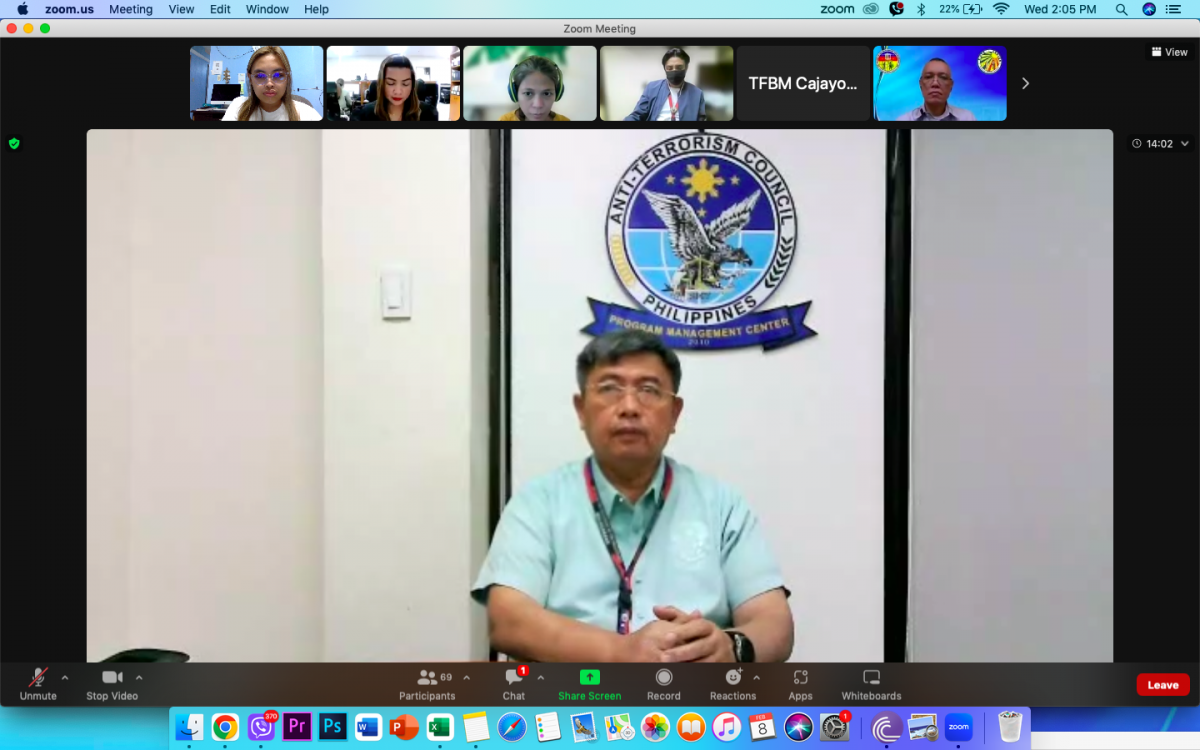MARAWI CITY, Lanao del Sur (PIA)--The Anti-Terrorism Council (ATC) in the country never ceases to make sure that violent extremism has no room in this nation.
As part of this effort, the ATC ensured to meet with its members for an information briefing that tackled the normalization mechanism of the Bangsamoro peace process and the Task Force Bangon Marawi’s (TFBM’s) programs, accomplishments, and updates on the reintegration and rehabilitation of the city here and the affected families.
ATC-Program Management Center (PMC) Officer-in-Charge Lawyer Florentino Manalastas Jr. underlined that the essence of the information briefing is to apprise the concerned government agencies of the normalization status of the Bangsamoro region after 26 long years of insurgency by the Moro Islamic Liberation Front (MILF), which led to peace negotiations with the Philippine government and the establishment of the Bangsamoro Autonomous Region in Muslim Mindanao (BARMM).
He added that this activity was also intended to explore the rehabilitation and reintegration mechanisms undertaken by the TFBM.
Manalastas further stated that the council is moving to discuss measures to counter extremism in the country.
He underscored that the 2017 siege in this city is one of the most unforgettable scars in the nation's history.
As such, Manalastas stressed that everyone should reflect on the lessons learned from this dark chapter to prevent a similar incident from happening again in any part of the country.
He stated that the issue of violence cannot be resolved with the existence of the military alone, as there must be a proper intervention that reaches the most secluded parts of the communities.
"We should keep in mind that military responses do not resolve the underlying issues that allowed for the recruitment of violent extremist groups, but rather, let us intensify the intervention program to prevent and counter violent extremism in the grassroots," said Manalastas.
On behalf of the residents affected by warfare, the ATC head posited that the government should ensure the immediate restoration of livelihoods to meet the basic needs of internally displaced persons (IDPs) to prevent them from being exploited by the enemy terrorists.
Manalastas also said that people must stay strong in their fight against violent extremism as long as violent extremists continue to inspire and recruit people.
Meanwhile, United Nations Office of Counter-Terrorism (UNOCT) Program Management Officer Gen. Mel Feliciano attested that the ATC-PMC has been doing its best to continuously oversee the implementation of the national action plan on preventing and countering violent extremism, seeing to it that all the programs of different relevant stakeholders are aligned towards addressing the drivers or factors of recruitment and radicalization that lead to violent extremism, particularly in the Bangsamoro region and other conflict-affected areas.
He testified that the ATC member Office of the Presidential Adviser on the Peace Process, Reconciliation, and Unity (OPAPRU) has a program on the normalization process that is also economic-related and relevant in addressing socio-economic concerns on the ground.
Feliciano mentioned as well that the TFBM has been effective in the reintegration of former violent extremists, in that it has provided programs for them to be reintegrated into mainstream society and brought strong narratives to those who are still in the violent organizations, encouraging them to join the community once again.
"At the end of the day, considering all the programs that are there in the BARMM, and making them aligned and complementary, is what is the essence of the implementation of ATC-PMC," he said. (CRG/PIA-10/Lanao del Sur)



